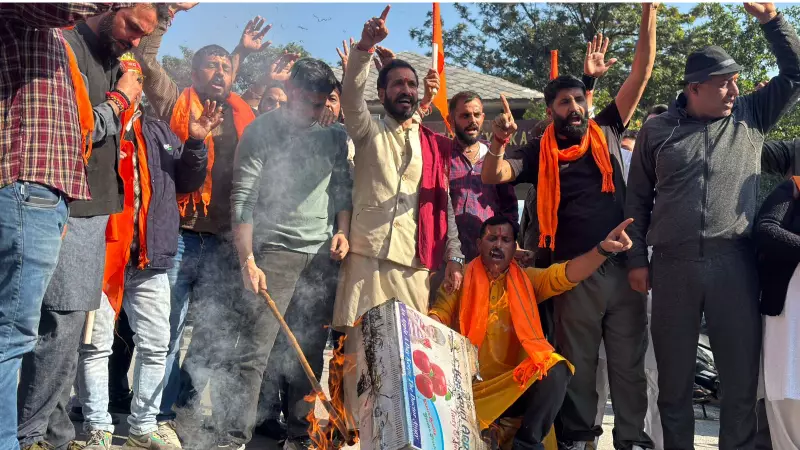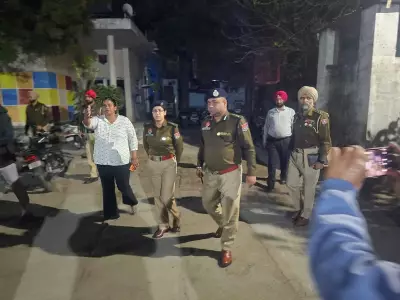
Religious Composition of Medical College Batch Triggers Major Controversy in Jammu
Significant protests have erupted in Jammu following the release of admission lists for the newly established Shri Mata Vaishnodevi Institute of Medical Excellence in Katra. The controversy centers around the fact that 90% of the selected candidates for the first batch are Muslim students from Kashmir, sparking demands from Sangh Parivar organizations to scrap the entire admission process.
Sangh Outfits Lead Demonstrations Against Admission List
Organizations including the Vishva Hindu Parishad (VHP) and Bajrang Dal have taken to the streets, organizing demonstrations outside the medical college premises at Kakrayal near Katra. The protests gained political momentum when BJP Udhampur MLA R S Pathania publicly supported the demands to cancel the current admission list.
The core argument presented by protestors revolves around the funding source of the institution. The medical college was established using donations offered at the Vaishno Devi shrine, which primarily comes from Hindu pilgrims. Protestors contend that an institution built with Hindu devotees' contributions should not be dominated by students from the Muslim community.
VHP J&K president Rajesh Gupta characterized the admission list as "a conspiracy to Islamize the medical college" and demanded that admissions for the 2025-26 session be immediately put on hold. Similarly, Bajrang Dal J&K president Rakesh Bajrangi alleged bias in the selection process conducted by the J&K Board of Professional Entrance Examinations (JKBOPEE).
Official Stance: Admissions Follow Established Guidelines
Despite the heated protests, officials maintain that the admission process has been conducted properly according to established norms. The Shri Mata Vaishnodevi Institute of Medical Excellence is not classified as a minority institution, which means it cannot legally reserve seats based on religious criteria.
The admission process followed National Medical Council (NMC) guidelines, which mandate that all 1,685 seats across Jammu and Kashmir's 13 medical colleges must be filled through the NEET ranking system. Additionally, 85% of seats are reserved for UT domiciles, with the remaining 15% open to candidates from other states.
The specific circumstances surrounding the Vaishnodevi college admissions contributed to the current composition. Admissions began relatively late on September 8, after the NMC granted approval. By this time, the first two rounds of counseling for J&K medical colleges had already concluded, forcing the JKBOPEE to prepare the list after a third round of counseling.
Broader Patterns in Jammu and Kashmir Education Landscape
Officials pointed out that the current admission pattern is not unprecedented. In recent years, students from Kashmir have increasingly dominated medical college seats in the Jammu region, despite Jammu having more available seats (900 compared to Kashmir's 675).
Interestingly, the reverse trend occurs in engineering colleges, where Jammu students show greater preference. This phenomenon reflects broader educational and career preference patterns across the two regions.
The JKBOPEE shortlisted 5,865 UT domicile candidates for the 13 medical colleges, calling 2,000 candidates for counseling. In this larger pool as well, over 70% of candidates belonged to the Muslim community, indicating that the Vaishnodevi college admissions reflect wider demographic trends in competitive exam performance.
College authorities had previously requested permission from the Centre and NMC to admit students from the central NEET pool, which would have included candidates from across India. However, this request was denied because NMC regulations only permit such admissions for government institutions or premier institutes established by Parliament.
As the controversy continues, National Conference's Jammu province president Rattan Lal Gupta placed responsibility on the Shri Mata Vaishno Devi Shrine Board, suggesting that had they sought minority status during the application process, the current situation might have been avoided.






